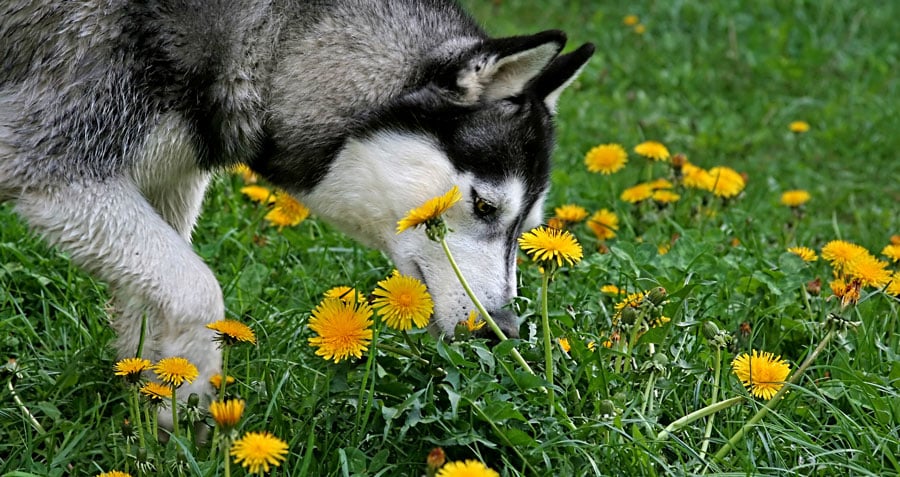Ahhh, the beauty of summertime: the hum of lawnmowers and the smell of fresh-cut grass are staples of this time of year. Everyone wants that lush, green lawn this time of year. Because of this, pesticides are a common sight in the lawn care regimen of the typical American; in fact, around 32% of lawn and garden sales are pesticides in the U.S.
It's understandable that these products are a routine part of modern lawn care. But have you considered whether the chemicals you're using to keep your grass green could be harmful to your pets? Lawn care chemicals have been shown to have adverse side effects for the environment and animals, and your pets are vulnerable to these effects. Your lawn care efforts could mean that your pet ends up sick. Here's what you need to know to keep your dog or cat safe.
Lawn Care and Your Pet
Did you know that dogs and cats are more susceptible to the adverse side effects of chemicals than humans are? Because they walk low to the ground and tend to roll, play, and sniff in the grass, pets take in more of the chemicals from lawn application than humans do. But even so, people carry pesticide chemicals on them as well; studies show that pesticides make their way inside with us on our clothes and shoes.
So what can you do to make sure that your pet doesn't end up sick—or worse? Make sure you know your stuff before heading out to your lawn with a spray gun.
Know the Biggest Culprits
For the most part, reading labels will help you identify which products are safest for use around your pets. There's a range of side effects that your dog could experience from mild to severe—for instance, fertilizers may only upset your dog's stomach from direct ingestion, while certain insecticides could be deadly.
Think twice before using insecticides and snail bait in your yard where your pet roams freely. These tend to be the worst culprits when it comes to pet safety. There are safer alternatives to these products, such as pyrethrins. When you're purchasing your products, be sure you read labels and talk to an expert.
Although insecticides tend to be the most dangerous, there are also herbicides and fertilizers that you should look out for. Disulfoton is a common pesticide for roses that can cause seizures in animals and is highly toxic to pets.
What's the best way to make sure your pet is safe? Avoid products that aren't marked as safe for pets. When you apply fertilizer, water your lawn and wait a few days before letting your pet play outside on the grass. Avoid harsh chemicals that could have adverse effects on your dog or cat's health—as well as yours. And as always, do your own research beforehand and ask the right questions. The more you know, the better you do. For more information or if you have any questions, contact us.

